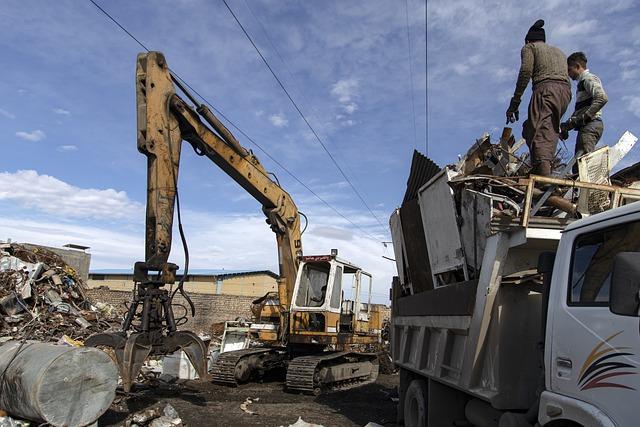A devastating landslide at a landfill site in UgandaŌĆÖs capital, Kampala, has resulted in the tragic loss of at least 17 lives, with authorities intensifying efforts to search for survivors amid the rubble. The incident occurred late on a Sunday, when heavy rains led to the collapse of a section of the Nema Landfill, exacerbating ongoing concerns about safety measures and environmental hazards at the site. Rescue teams, equipped with heavy machinery and search dogs, are working around the clock to locate any remaining individuals trapped beneath the debris. As the nation mourns the victims, questions are being raised about the management of waste facilities and the preparedness for such natural disasters, highlighting the urgent need for improvements in urban planning and disaster response strategies in Uganda.
Landslide Tragedy Strikes Urban Community in Kampala
A devastating landslide occurred at a landfill site in Kampala, tragically claiming the lives of 17 individuals and leaving the tight-knit urban community in mourning. Witnesses describe scenes of chaos and desperation as the earth crumbled beneath them, engulfing homes and trapping inhabitants. The community has been heavily affected, with many families losing loved ones and facing crippling uncertainty about their future. Rescuers continue to comb through the debris, driven by hope but challenged by the unstable conditions of the site.
Local authorities have mobilized resources to assist in recovery efforts while calling for urgent measures to enhance the safety of informal settlements near hazardous areas.In the wake of this disaster, city officials are urgently addressing the need for improved urban planning and education on landslide risks. Key stakeholders have emphasized the importance of community awareness about the dangers posed by building near landfill sites, aiming to prevent future tragedies. The following initiatives are being proposed:
- Increased monitoring: Regular assessment of vulnerable areas.
- Public awareness campaigns: Educating residents about landslides.
- Emergency response training: Preparing communities for disaster scenarios.
- Infrastructure advancement: reinforcing the safety of at-risk zones.

Rescue Operations Continue as Hope Fades for Missing Individuals
Rescue teams are working tirelessly around the clock in a desperate bid to locate survivors trapped beneath the rubble of the recent landslide at the landfill site in Uganda’s capital. Despite the relentless efforts, hope is dwindling as officials confirm that the death toll has risen to 17 individuals. The challenging conditions at the scene, including unstable ground and continued rainfall, have elaborate the search operations substantially. As the hours pass, the possibility of finding additional survivors diminishes, yet rescuers remain unwavering in their commitment to comb through the debris, urging community members to assist and stay vigilant.
Authorities have implemented various strategies to manage the growing crisis, including the mobilization of specialized search dogs and heavy machinery to expedite the removal of debris. Community members have gathered to support the families affected, providing food and comfort as they await news of their loved ones. The incident has also prompted discussions about safety measures at landfill sites and the need for improved infrastructure to prevent such tragedies in the future. Local officials have stated that an inquiry will be conducted to assess the circumstances surrounding the landslide.
| Victim Details | Status |
|---|---|
| Rescued Individuals | 4 |
| Confirmed Fatalities | 17 |
| Missing Persons | 5 |

Impact of Poor Waste Management Practices on Public Safety
Recent disasters, such as the tragic landslide at a landfill in Uganda’s capital, highlight the urgent need for effective waste management practices. Poor waste disposal not only results in the accumulation of hazardous materials but also poses significant threats to public safety. Communities situated near landfills are often at risk from the following issues:
- Environmental Pollution: Contaminated water sources can lead to widespread health problems.
- Structural Instability: Accumulated waste can cause soil erosion and undermine the integrity of nearby structures.
- Public Health Hazards: Improper waste often attracts pests, contributing to the spread of diseases.
Additionally,governmental agencies and municipalities often struggle to address these challenges effectively due to insufficient funding and lack of infrastructure. The reliance on outdated waste management systems exacerbates these dangers, increasing the likelihood of accidents.In response to this crisis, it would be beneficial to consider the following measures:
| Proposed Measures | Description |
|---|---|
| Enhanced Waste Collection | Regular and systematic collection schedules to prevent overflow and illegal dumping. |
| Public Awareness Campaigns | Educational initiatives to inform residents about proper waste disposal methods. |
| Investment in Infrastructure | Development of safe landfill sites and recycling centers to manage waste effectively. |

Government Response and Calls for Improved Urban Planning Measures
In the wake of the tragic landslide at the Ddumba landfill in Kampala,which resulted in the loss of 17 lives,local and national authorities are under increasing pressure to implement effective urban planning strategies.As the city grapples with rapid urbanization and inadequate waste management systems, calls for immediate action have become more prominent. Community leaders and environmental activists are urging the government to prioritize comprehensive urban planning initiatives that include:
- Risk Assessment: Conduct a thorough assessment of hazardous areas prone to environmental disasters.
- Improved Regulations: Establish stricter regulations regarding landfill management and waste disposal practices.
- Community Involvement: Engage local communities in urban planning processes to ensure their safety and needs are addressed.
- Investment in Infrastructure: Allocate government resources to develop robust infrastructure that can withstand environmental challenges.
Officials have acknowledged the need for urgent reform, emphasizing that this catastrophe serves as a critical wake-up call. In a bid to prevent future incidents, the government is considering the establishment of a multi-stakeholder task force dedicated to urban resilience and enduring development. An introductory meeting is planned, aiming to outline a structured approach with key objectives, such as:
| Objective | Action Plan |
|---|---|
| Monitoring | Continuous assessment of high-risk areas. |
| Education | Awareness campaigns on waste management. |
| Collaboration | Partnership with NGOs for sustainable projects. |

Community Resilience and Support for Victims’ Families
The tragic landslide at the landfill in Uganda’s capital has not only shaken the city but has also highlighted the strength and resilience of the community in the wake of disaster. As families grapple with the loss of their loved ones, local organizations and volunteers have rallied together to provide essential support. Initiatives include:
- Counseling Services: Psychologists and support groups are offering free counseling sessions to help families cope with grief.
- Food and Shelter: Community members are donating food and providing temporary shelter for those displaced by the landslide.
- Fundraising Efforts: Various fundraising campaigns have been launched to assist affected families with medical bills and funeral expenses.
In addition to these immediate actions, there is a clear emphasis on long-term support and rebuilding efforts. Local leaders are coming together to create a comprehensive plan aimed at enhancing disaster preparedness and mitigating future tragedies. Proposed measures include:
| Proposed Measures | Details |
|---|---|
| Community Workshops | Training locals on emergency response and preparation. |
| Infrastructure Assessment | Evaluating and reinforcing vulnerable structures around the landfill. |
| policy Advocacy | Engaging local government to improve waste management practices. |

Lessons Learned: Implementing Preventative Strategies to avoid future Disasters
The tragic landslide at the landfill in Uganda’s capital serves as a stark reminder of the urgent need for effective preventative measures in waste management and urban planning. Investing in comprehensive risk assessments can definitely help identify vulnerable areas prone to such disasters. Communities should prioritize the following strategies to mitigate future hazards:
- Implementing effective waste management systems: Establishing proper disposal and recycling methods can reduce the volume of waste accumulation in hazardous areas.
- Regular monitoring and maintenance: Authorities should conduct frequent inspections of landfill sites to ensure structural integrity and early detection of potential landslide risks.
- Community education and engagement: Raising awareness about the dangers of unregulated waste disposal can empower citizens to advocate for safer practices.
Additionally, collaboration between governmental and non-governmental organizations can foster innovative solutions to address these challenges. By creating a detailed emergency response plan, communities can equip themselves to handle disasters more effectively. The following table outlines key components of such a plan:
| Component | Description |
|---|---|
| Risk Assessment | Evaluate potential hazards and their impacts on the community. |
| Training Programs | Conduct regular training for local responders and residents on emergency protocols. |
| Resource Allocation | Ensure the availability of necessary resources, such as safety equipment and first aid supplies. |
| Dialog Strategy | Establish clear channels for reporting emergencies and disseminating information. |

Closing Remarks
As rescue operations continue in the aftermath of the tragic landslide at a landfill in Uganda’s capital, the nation grapples with the devastating loss of 17 lives. The incident,which occurred as heavy rains lashed the area,underscores the urgent need for enhanced safety measures and infrastructure improvements in vulnerable communities. Local authorities are now faced with the dual challenge of providing support to grieving families and preventing future disasters. As search teams remain hopeful in their efforts, the incident serves as a somber reminder of the risks posed by inadequate waste management systems and climate change. The road ahead will require not only immediate assistance for those affected but also a commitment to long-term solutions that prioritize the safety and well-being of all citizens.







